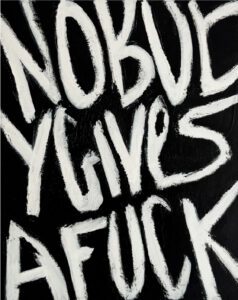The Rock & Roll Hall of Fame continues to be one of the most prestigious accolades for musicians, honoring those whose contributions have profoundly shaped the cultural and sonic landscape of modern music. This year, the Hall welcomed an exceptional group of inductees, including Dionne Warwick and Foreigner, both of whom represent different facets of the musical spectrum but share one commonality—their undeniable influence on generations of listeners and artists alike. Their inductions mark a moment of recognition not just for their individual careers, but for the broader impact they have had on music, culture, and even social movements.
Dionne Warwick: A Trailblazer in Pop and Soul
Dionne Warwick’s induction into the Rock & Roll Hall of Fame feels long overdue. Warwick, known for her silky, emotive voice and a catalog that includes timeless classics like “Walk On By,” “I Say a Little Prayer,” and “Do You Know the Way to San Jose,” is a defining figure in the history of pop and soul music. Her collaborations with legendary songwriters Burt Bacharach and Hal David resulted in some of the most iconic pop songs of the 20th century, solidifying her status as a trailblazer who paved the way for future generations of Black female vocalists in pop and R&B.
Warwick’s career began in the early 1960s, a time when Black artists were still struggling for mainstream recognition in the predominantly white music industry. Her smooth, sophisticated sound allowed her to transcend racial barriers, making her one of the first Black women to achieve widespread crossover success in the pop charts. Her ability to combine soul, pop, and easy listening in her music not only earned her commercial success but also broke down racial and genre barriers at a time when the music industry was largely segregated.
Warwick’s vocal style is elegant and restrained, yet deeply expressive. Unlike some of her contemporaries, Warwick never relied on showy vocal acrobatics to convey emotion. Instead, she used her voice like an instrument, carefully modulating her tone to communicate vulnerability, strength, and sophistication all at once. Her voice, instantly recognizable, became the perfect vehicle for Bacharach and David’s emotionally complex songs, which often dealt with themes of love, heartbreak, and longing.
Beyond her vocal prowess, Warwick also stands out for her longevity and adaptability. In a career that has spanned six decades, Warwick has continually reinvented herself while remaining true to her roots. Whether collaborating with Bacharach in the 1960s, crossing over to disco in the 1970s, or working with younger artists in the 2000s, Warwick has remained a relevant and beloved figure in popular music. Her induction into the Rock & Roll Hall of Fame is not just a celebration of her past achievements but a recognition of her ongoing influence on the music industry.
Foreigner: Masters of Arena Rock and Power Ballads
While Dionne Warwick’s induction celebrates the subtle artistry of pop and soul, Foreigner’s recognition acknowledges the power and emotional force of arena rock. Formed in the late 1970s, Foreigner quickly rose to prominence with their distinctive blend of hard rock, blues, and pop-infused melodies. Songs like “Cold as Ice,” “Hot Blooded,” and “I Want to Know What Love Is” have become anthems of classic rock, and their presence on the Hall of Fame roster reinforces their importance in the evolution of the genre.
Foreigner’s sound, led by the songwriting partnership between Mick Jones and Lou Gramm, was marked by its ability to merge the driving intensity of rock with the emotional depth of power ballads. While their hard-hitting rock anthems dominated radio playlists, it was their ballads that truly showcased their versatility and emotional reach. “I Want to Know What Love Is,” in particular, has become one of the defining power ballads of the 1980s, with its soaring chorus and introspective lyrics touching listeners across generations.
In many ways, Foreigner helped define what became known as arena rock—a genre characterized by its larger-than-life sound, catchy hooks, and ability to connect with massive audiences. Arena rock thrived in the late 1970s and 1980s, a time when rock bands were performing to sold-out stadiums and creating music that was designed to fill those vast spaces. Foreigner was one of the leaders of this movement, with their polished production and radio-friendly sound making them a favorite of rock fans around the world.
However, Foreigner’s appeal went beyond just their ability to fill arenas. The emotional intensity of their music, particularly in songs like “Waiting for a Girl Like You” and “That Was Yesterday,” showcased the band’s skill at blending rock with emotional storytelling. While some critics have dismissed arena rock as formulaic or lacking depth, Foreigner’s music stands as a testament to the power of rock to convey universal emotions—love, loss, and longing—through accessible, memorable songs.
Their induction into the Rock & Roll Hall of Fame not only celebrates their contributions to rock music but also recognizes their enduring influence on the genre. Foreigner’s music continues to resonate with new generations of listeners, and their songs have been covered by numerous artists, further cementing their legacy in rock history.
Impression
The inductions of Dionne Warwick and Foreigner into the Rock & Roll Hall of Fame highlight the diversity of musical styles that have shaped rock and popular music. While Warwick’s smooth, soulful voice represents the softer, more intimate side of pop, Foreigner’s anthemic rock hits exemplify the genre’s larger-than-life energy. Together, their inductions celebrate the breadth of what the Rock & Roll Hall of Fame represents—the ability to transcend genres, break barriers, and connect with audiences on an emotional level.
Warwick and Foreigner’s musical journeys both speak to the power of music to evolve and adapt over time. Warwick’s seamless blending of genres—soul, pop, R&B—and Foreigner’s mastery of hard rock, blues, and ballads, demonstrate how artists who are willing to push boundaries can leave a lasting impact on the industry. Their careers also highlight how music has the ability to transcend time; decades after their first hits, their music still resonates deeply with fans.
In addition to their musical achievements, both Warwick and Foreigner have made significant cultural contributions. Warwick’s work as a humanitarian and advocate for HIV/AIDS awareness has shown that her influence extends far beyond the music world. Similarly, Foreigner’s philanthropic work, including their ongoing support for organizations like the GRAMMY Foundation, reflects their commitment to using their platform for positive change.
The induction of Dionne Warwick, Foreigner, and other artists into the Rock & Roll Hall of Fame is a reminder of the transformative power of music. These artists have not only shaped the sound of their respective genres but have also left an indelible mark on popular culture. Warwick’s elegant vocal stylings and Foreigner’s electrifying arena rock anthems represent two sides of the same coin—both tapping into the emotional core of music, whether through intimate ballads or powerful rock hits.
The recognition of these artists by the Rock & Roll Hall of Fame is a celebration of their contributions to music history. Their influence continues to be felt, both by listeners who have followed their careers for decades and by new generations of fans discovering their timeless sound.
No comments yet.








